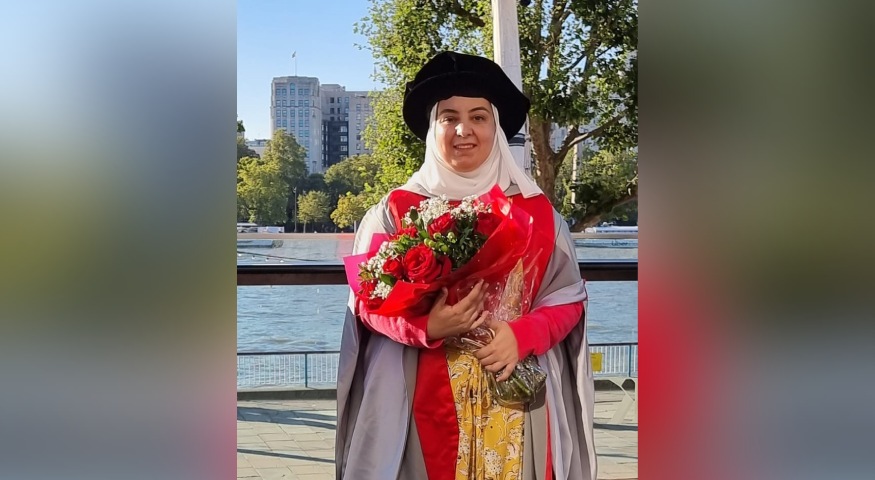MAPS 2023 Postgraduate (PhD) Innovation & Enterprise Competition Prize Winner Announced
19 September 2023
Many congratulations to Diana Ahmed, winner of the 2023 MAPS Faculty Postgraduate (PhD) Innovation and Enterprise Prize Competition.

Postgraduate (PhD) Innovation and Enterprise Prize Competition
The first Postgraduate (PhD) Innovation and Enterprise prize was awarded to Diana Ahmed (UCL Physics and Astronomy). Her project was acknowledged for its exceptional innovation and its potential to make a positive economic and societal impact. The competition's goal was to inspire entrepreneurial spirit among the students.
Diana Salah Raie Ahmed - UCL Physics & Astronomy
"Chemical Effects of Magnetic Nanoparticles on Heavy Metal Removal"
In her response to being awarded the prize, Diana stated:
 "I am delighted I won the MAPS Postgraduate Innovation and Enterprise Award for my PhD project, “Chemical effects of magnetic nanoparticles on heavy metals removal”. MAPS competition inspired me to consider how scientific research might have a positive impact on the economy and society, as well as to improve my entrepreneurial attitude.
"I am delighted I won the MAPS Postgraduate Innovation and Enterprise Award for my PhD project, “Chemical effects of magnetic nanoparticles on heavy metals removal”. MAPS competition inspired me to consider how scientific research might have a positive impact on the economy and society, as well as to improve my entrepreneurial attitude.
The tackled problem during my PhD studies was industrial wastewater, which is a global challenge because of its richness of pollutants. Hexavalent chro-mium (Cr6+), a carcinogen, leaks into the surface, groundwater, and soil from indus-trial effluents, end-of-life products, and mining sites. The leakage of Cr into the en-vironment is reported in many countries, including Bangladesh, Brazil, China, Egypt, Greek, India, Pakistan, UK. So, finding innovative solutions for removing Cr6+ becomes an urgent need.
My PhD aimed to use manganese ferrite (MnxFe3-xO4) nanostructures to en-hance the bio-detoxification of Cr6+ to a less toxic trivalent state (Cr3+). Shewanella oneidensis MR-1 bacteria are selected for the bio-reduction of Cr6+. My research contributed to finding the best chemical composition and synthesis conditions of nanostructures that showed the highest adsorption capacity for Cr6+ and boosted the microbial reduction of Cr6+. My study will decrease the cost of nanostructures production and, in turn, the water treatment process.
This integrated technology is easy to use, cost-effective, and accessible for low- and middle-income countries. The treated water can be re-circulated in the same industry to save surface water. Protecting people’s health and creating job opportunities will positively affect the national income."
Diana's supervisor is Professor Nguyen T. K. Thanh.
 Close
Close

